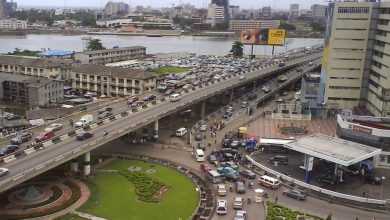
10 Factors Affecting Unemployment In Nigeria
Factors Affecting Unemployment In Nigeria – Unemployment is a major issue in Nigeria, with high rates of joblessness impacting the country’s economy and population. The unemployment rate in Nigeria has been consistently high in recent years, with estimates suggesting that as much as 40% of the population is unemployed or underemployed. Factors such as a lack of education and training, inadequate infrastructure, and limited access to finance are major contributing factors to the high rates of unemployment in Nigeria. The Nigerian government has implemented various policies and programs aimed at addressing unemployment, but the problem remains a significant challenge for the country.Information Guide Nigeria
Read Also: 10 Factors Affecting National Development In Nigeria
👉 Relocate to Canada Today!
Live, Study and Work in Canada. No Payment is Required! Hurry Now click here to Apply >> Immigrate to CanadaWhat is Unemployment?
Unemployment is a measure of the number of people in the labor force who are not currently employed but are actively seeking employment and willing to work. It is usually expressed as a percentage of the total labor force. High levels of unemployment can indicate a weak economy and can have negative effects on individuals and society.
Read Also: 10 Factors Affecting National Security in Nigeria
Types of Unemployment in Nigeria
There are several types of unemployment in Nigeria, including:
- Structural Unemployment: This type of unemployment occurs when there is a mismatch between the skills of the unemployed and the skills needed for the available jobs.
- Cyclical Unemployment: This type of unemployment is caused by a downturn in the business cycle and a decrease in aggregate demand.Factors Affecting Unemployment
- Frictional Unemployment: This type of unemployment occurs when workers are in the process of transitioning between jobs.
- Seasonal Unemployment: This type of unemployment occurs when there is a lack of work during certain seasons, such as farming or tourism.
- Technological Unemployment: This type of unemployment occurs when technological advancements automate certain jobs and make them redundant.
- Youth Unemployment: This type of unemployment is high among young people in Nigeria, as many struggle to find jobs after completing their education.
- Underemployment: This type of unemployment is when a person is employed but not in a job that matches their qualifications or skills.
Read Also: 10 Factors Affecting National Unity In Nigeria
Demerits of Unemployment in Nigeria
Unemployment in Nigeria can lead to several negative consequences, including:
- Economic Instability: High levels of unemployment can lead to decreased consumer spending and reduced economic growth.
2 Poverty and Inequality: Unemployment can lead to poverty and inequality as people struggle to make ends meet without a steady source of income.
- Social Issues: Unemployment can lead to social unrest and crime as people become desperate for money and resources.
- Loss of Skills and Productivity: When people are unemployed, they may lose the skills and experience they need to find new employment, which can make it even more difficult for them to find work in the future.
- Mental Health Issues: Unemployment can lead to stress, anxiety, and depression, which can negatively impact a person’s overall well-being.
- Political Instability: High levels of unemployment can lead to social unrest and dissatisfaction with the government, which can lead to political instability.20 Best Gas Cookers Pictures and their Prices in Nigeria
Unemployment and the Nigerian Society
Nigeria, a country located in West Africa, has a long history of high unemployment rates. The country has a population of over 200 million people, and it is the largest economy in Africa. However, despite its wealth of natural resources, the country has struggled with high levels of poverty and unemployment.
In the early days of Nigeria’s independence, the government focused on import substitution industrialization, which led to the development of large state-owned enterprises. However, this strategy ultimately led to inefficiencies, and the country’s economy began to decline in the 1980s.6 Best Airtel 4g Mifi and their Prices in Nigeria
👉 Relocate to Canada Today!
Live, Study and Work in Canada. No Payment is Required! Hurry Now click here to Apply >> Immigrate to CanadaIn the 1990s, the government implemented economic liberalization policies, which led to the privatization of many state-owned enterprises. This resulted in job losses for many Nigerians, and the unemployment rate increased.NYSC Portal
In recent years, Nigeria has experienced high levels of youth unemployment, with more than 60% of young people between the ages of 18 and 35 unemployed. The country’s economy has also been affected by the global drop in oil prices, which is a major source of revenue for the country.JAMB Portal
The Nigerian government has implemented various programs and policies to address unemployment, such as investment in infrastructure and the promotion of small and medium-sized enterprises. However, the country still struggles with high unemployment rates, and it remains a major challenge for the Nigerian government.
Read Also: 10 Factors Affecting Leadership in Nigeria
Factors affecting Unemployment in Nigeria
Several factors affect unemployment in Nigeria, including:
- Economic Policies: Government policies and regulations have a significant impact on unemployment rates. For example, if policies are not conducive to business growth and development, it leads to a lack of job opportunities.JAMB Result
- Education and Skills: A lack of education and relevant job skills make it difficult for individuals to find employment.
- Corruption: Corruption deter foreign investment and prevents the growth of small businesses, leading to fewer job opportunities.
- Political Instability: Political instability and insecurity discourage investment and business development, leading to unemployment.200 romantic love messages for her
- Demographic Changes: Nigeria is a rapidly growing country and the large youth population means a large number of people entering the labor market each year.
- Inadequate Infrastructure and Power Supply: A lack of infrastructure and power supply makes it hard for businesses to operate, leading to unemployment.
- Natural Disasters: Natural disasters such as floods and droughts disrupt economic activity and lead to job losses.
- Inflation: High inflation can lead to a decrease in purchasing power and a decrease in demand, leading to job losses.
- Labor Market Rigidities: Rigidities in the labor market, such as strict regulations on hiring and firing, makes it difficult for businesses to adjust their workforce, leading to unemployment.
- Underemployment: Many people in Nigeria are underemployed, meaning they have jobs but are not utilizing their full skills and potential. This can lead to a lack of productivity and economic growth.
Read Also: 10 Factors Affecting Nationalism and Patriotism in Nigeria
Conclusion
Unemployment remains a major issue in Nigeria, with high population growth and inadequate economic growth leading to a large number of unemployed individuals, particularly among the youth. The government and private sector must work together to create more job opportunities and improve workforce skills, as well as address underlying economic issues such as corruption and poor infrastructure. Vocational training and small business development can also help to decrease unemployment in the country.105 goodmorning messages
Check JAMB Result
Check and Confirm: How much is Dollar to Naira today








